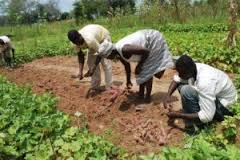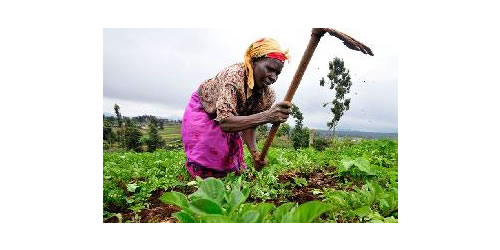Police avert clash between farmers and Fulani herdsmen at Agogo

The Ashanti Regional Police Command has intervened to avert a possible clash between farmers at Asante-Akyem Agogo and some Fulani herdsmen in the area over the use of land for farming and cattle rearing.
The farmers had threatened to take up arms and avenge the killing and raping of their people and the destruction of their farms by the Fulani herdsmen.
However, in a swift intervention to contain the situation, the Ashanti Regional Police Commander, Deputy Commissioner of Police (DCOP) Mr Nathan Kofi Boakye, and his lieutenants yesterday rushed to the area on a peace mission.
The police held separate meetings with the chiefs, the people and the Fulani herdsmen in Agogo in an effort to defuse the tension.
Speaking at the separate meetings, DCOP Boakye assured the people that the police would make every effort to maintain law and order.
He warned that any display of impunity by the Fulani and the people would be checked by arresting the culprits to face the full rigors of the law.
He said from the meetings with all the stakeholders, he had observed that there was the need to continue with the implementation of the road map to peace after the Kumasi High Court had ordered the Ashanti Regional Security Council (REGSEC) to evacuate the Fulani.
Background
On January 20, 2012, the Kumasi High Court ordered the REGSEC “to take immediate, decisive, efficacious and efficient action to flush out all cattle from Aberewapong, Mankaila, Nyamebekyere, Kowereso, Adomemu, Bebuoso and Brahabebome; all in the Agogo Traditional Area, the only exception being cattle that have been properly confined in a permitted area”.
Following the order, the REGSEC set up an 11-member committee on February 7, 2012 to investigate the Agogo Fulani issue.
Consequently, about 10,000 cattle were moved to the boundary between the Ashanti and the Eastern regions, while others went to the fringes of the disputed villages, but after some time the Fulani returned with their herd.
Currently, tomato, plantain, water melon and other cash crop farms in areas such as Nyamebekyere, Bebuoso, Brahabebome, Mankaila, Aberewapong, Onyemeso and Pataban have been abandoned because the farmers are afraid of attacks.
Victims
At a well-attended meeting with some of the victims, many of them told harrowing stories of how the Fulani, with impunity, continued to rape their wives and daughters, kill the men, steal their belongings and allowed their animals to destroy food crops, all at gunpoint.
Others showed pictures of the devastation cause by the animals and the bullet wounds they sustained from the sophisticated guns used by the Fulani.
Fulani
At a meeting with the Fulani, it came out that some of the chiefs in the area were principal collaborators who were urging and helping the Fulani to deal callously with the inhabitants.
Many of the Fulani insisted that most of their compatriots had the effrontery to cause mayhem and destroy property because they had been brought in by some of the chiefs, who always insisted that the land belonged to them.
A Fulani, Alhaji Issaka Sulemana, said the Fulanis were in three groups — the local ones who have been in the area for years, those from neighbouring Francophone and Anglophone countries.
He attributed all the problems to the visiting Fulanis and added that the local Fulanis had not been able to call the foreigners to order for fear of either being killed or their herds of cattle stolen.





